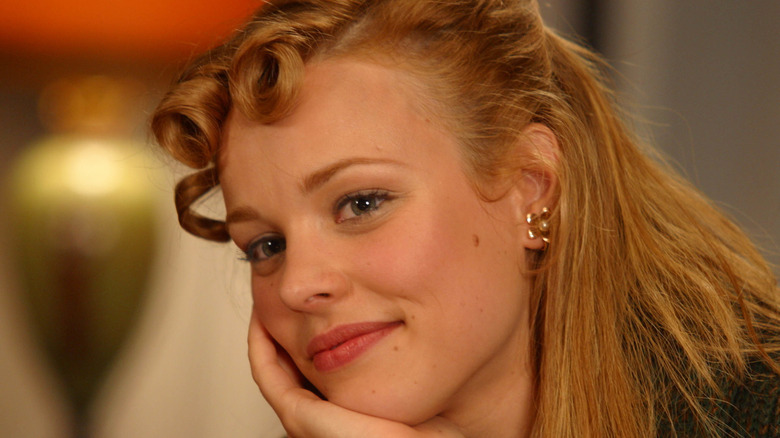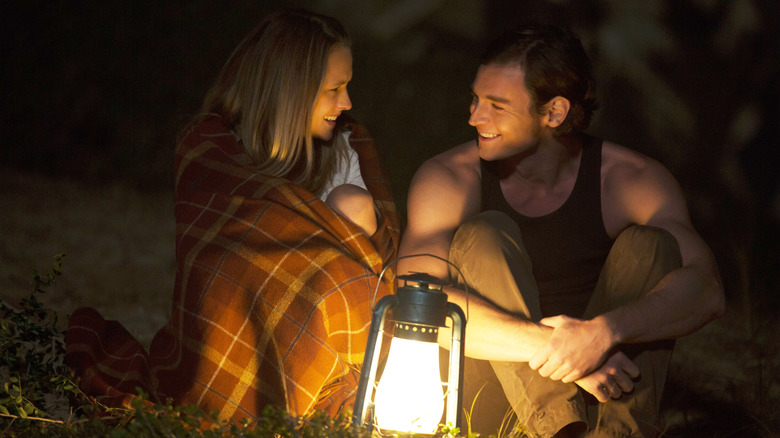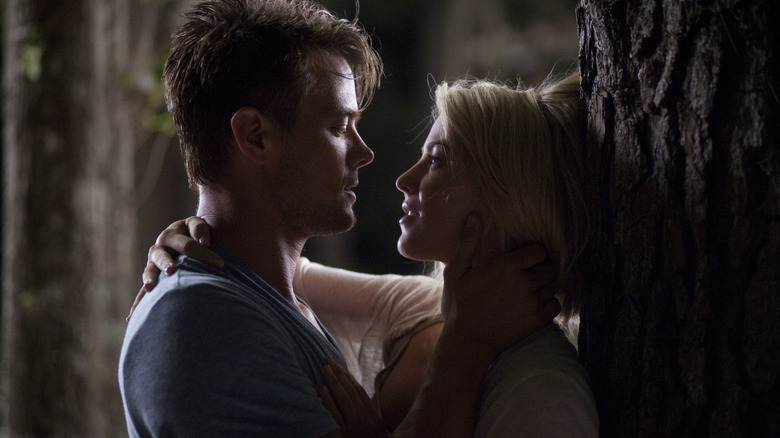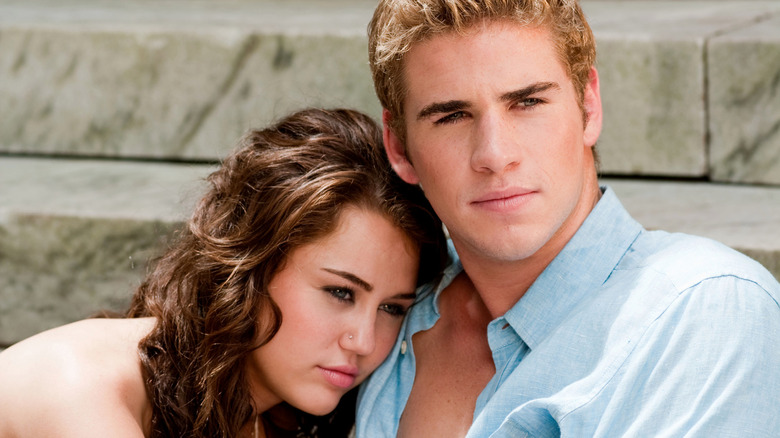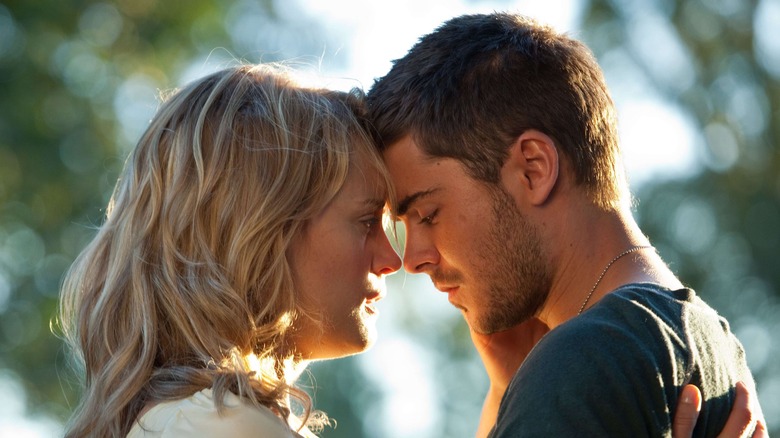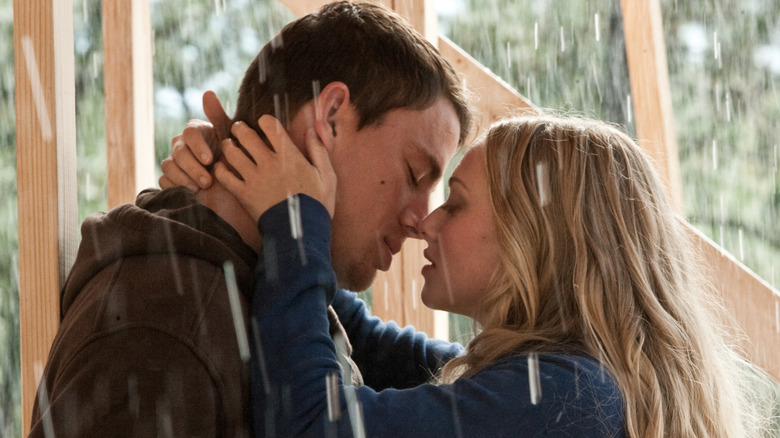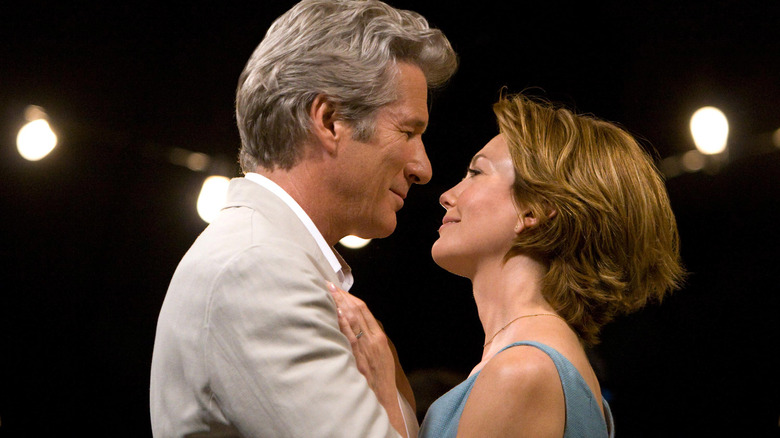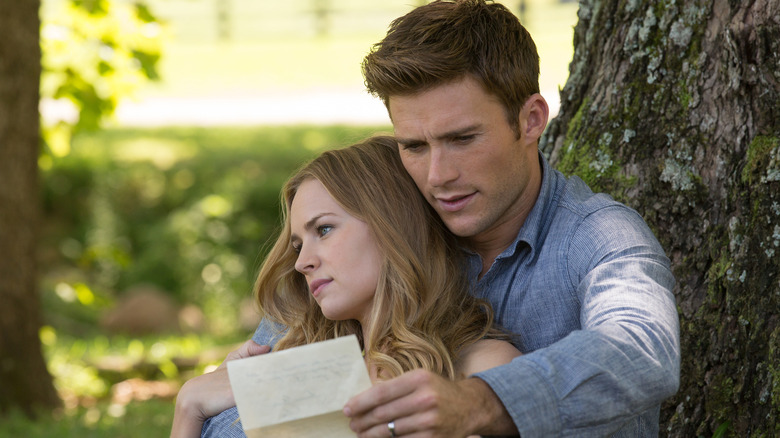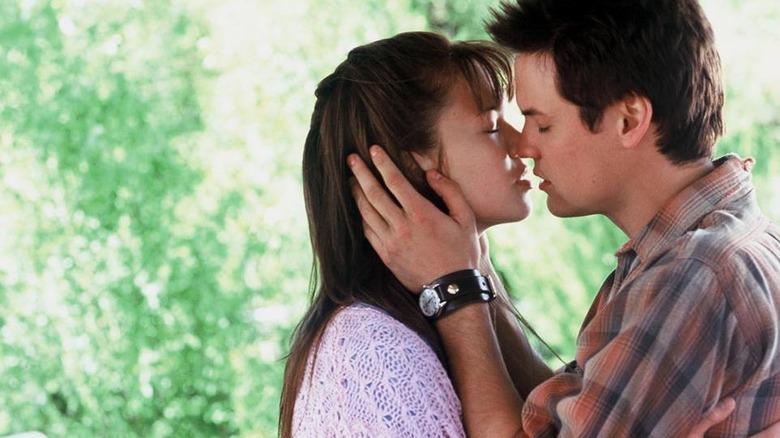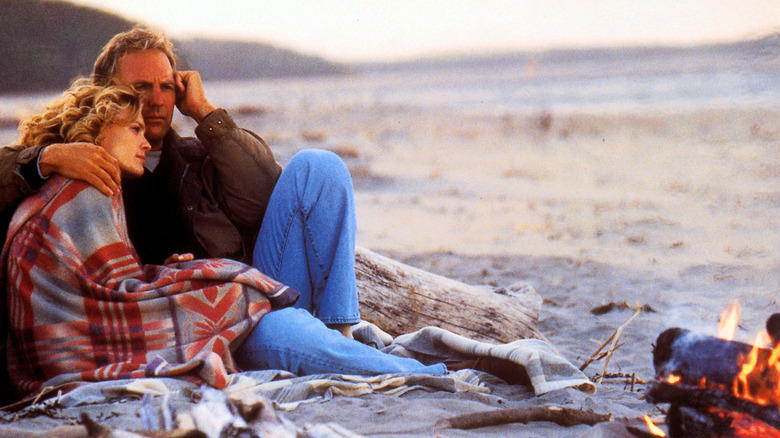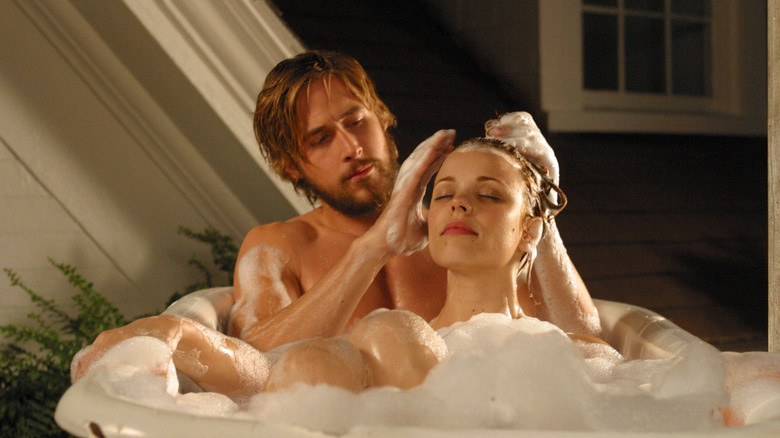Every Nicholas Sparks Movie Adaptation Ranked
When it comes to romantic stories that tug on the heartstrings, few names are as in demand as Nicholas Sparks. Having started off as a novelist whose published works shot to the top of the best-seller lists, Sparks made a name for himself in the early-to-mid '90s as a writer who could consistently craft narratives with compelling characters, strong emotional beats, and memorable set pieces — which, practically prefab, lent themselves perfectly to heart-tugging adaptation for the big screen.
Sparks began his writing journey in 1985, after being encouraged by his mother to start putting his creative energy to use. In the book "Three Weeks With My Brother," written by Sparks and his brother Micah, he details the exact conversation which inspired his younger self to begin writing books.
"He said, 'Your problem is that you're bored. You need to find something to do...' Then she looked at me and said the words that would eventually change my life: 'Write a book.' Until that moment, I had never considered writing. Granted, I read all the time, but actually sitting down and coming up with a story on my own? ...I was nineteen years old and had become an accidental author."
From there, Sparks would go on to write some of his most beloved works of fiction, including "The Notebook" in 1995 and "Message in a Bottle" in 1999, both of which would become #1 New York Times bestsellers.
By the end of the '90s, these books were increasingly drawing the attention of producers, who found there was money to be made in ticket (and Kleenex) sales by attaching stars to his tales of romance. It began with "Message in a Bottle" (Robin Wright and Kevin Costner), then "A Walk to Remember" (Mandy Moore and Shane West), then "The Notebook" (Rachel McAdams and Ryan Gosling) and from there, the floodgates opened with each passing year adding to the ever-growing list of Sparks films perfect for date-night cuddling on the couch.
Out of the 21 books Sparks has written in his career, as of 2022 there have been 11 turned into feature films — four of which, he has produced himself. Below is a (spoiler-heavy) ranking of every tear-jerking, heart-soaring one, from best to worst.
The Choice (2016)
A more recent — and perhaps, the most forgettable — film in the Sparks oeuvre, "The Choice" cast Benjamin Walker and Teresa Palmer as its leading lovers, telling the tale of a complicated love triangle between two neighbors (Walker and Palmer) and the woman's current boyfriend (Tom Welling), as an irresistible attraction threatens to ruin the lives of all involved. Suffice it to say fisticuffs, medical mishegoss, and plenty of romantic stargazing soon follow.
Despite co-starring such notables as Alexandra Daddario, Maggie Grace and two-time Oscar nominee Tom Wilkinson, the end result simply fails to draw out the same emotional pathos that the best Sparks adaptations have built their reputations around. Critics lambasted "The Choice" for lacking any real heart or soul, giving the movie a truly terrible 11 percent score on Rotten Tomatoes. If you're trying to make your own choice on which Sparks film to watch next, suffice it to say this one is only for the completists.
Safe Haven (2013)
Nicholas Sparks films have long been the access point for stars looking to establish a cinematic foothold, and "Safe Haven" was part of a Hollywood blitzkrieg lunched by "Dancing With the Stars" vet Hough — who made the Christina Aguilera/Cher film "Burlesque," the "Footloose" remake, the Tom Cruise dud "Rock of Ages" and this film all in the span of about three years, but hasn't done much film since.
Directed by a returning-to-the-franchise Hallström, this film has enough elements of violence and intrigue to make it stand apart from the others. It tells the story of a woman (Hough) in an abusive marriage, accused of attempted murder and forced to relocate to Southport, North Carolina to start a new life. It's there that she falls in love with a man named Alex (Josh Duhamel), while still being hunted down by a sadistic ex-husband (played by David Lyons).
While "Safe Haven" could be admired for being different from most Sparks adaptations, it was mostly panned by critics for its weak plotting plot and thin characters. The film currently has a 14 percent on Rotten Tomatoes with critics, and a 67 percent audience score.
The Last Song (2010)
When it came time for Miley Cyrus to make her live action film debut, and take on her first real adult role, she followed the Mandy Moore blueprint with this installment of the Sparks cinematic universe, alongside Liam Hemsworth (who she would later marry in real life) — also, at the time, taking on the most sizable role of his career.
"The Last Song" was directed by Julie Ann Robinson (better known for her production work on shows like "The Catch," "Bridgerton," and "Parks and Recreation"); the film centers around the difficult relationship between Ronnie (Cyrus) and her father (Greg Kinnear) as they spend time together in a southern town, where she falls for a young stud (Hemsworth).
The thematic glue for this one is mainly music, which helped ease the casting of Cyrus. Nevertheless, critics were not kind, and "The Last Song" sports a dismal 21% score on Rotten Tomatoes as well as a relatively low 65% score from audiences. Interestingly, this was the first time that a Sparks script was optioned, meaning the producers bought the rights to buy the screenplay at some point in the future, rather than to necessarily make the film.
The Lucky One (2012)
Another Sparks movie about a military veteran, "The Lucky One" is focused on a U.S. Marine named Logan Thibault (played by Zac Efron) who finds a photograph of a woman while serving in Iraq. He keeps the photo as a good luck charm, and after returning to the states he decides to track her down, discovering she's named Elizabeth Green (played by Taylor Schilling).
Critics wrote this one off as a trifle, and today the film sits at a mere 20 percent on Rotten Tomatoes, sand-bagged by dismissive reviews calling the movie cliché-ridden, hollow, and just plain bad. In his review for The Guardian, critic Peter Bradshaw described "The Lucky One" as "A tsunami of syrup and a Niagara of nonsense here in this mind-blowingly ridiculous romdram, adapted from a novel by Nicholas Sparks, the great master of this genre, and suffused in his signature buttery glow."
Nevertheless, the film did just fine at the box office, taking in nearly $100 million worldwide.
Dear John (2010)
Taking familiar elements from previous Sparks movies and passing them through the filter of a war movie, 'Dear John" finds moderate success.
Oddly enough, this is the film directed by arguably the most accomplished filmmaker to tackle a Sparks adaptation (Swedish filmmaker Lasse Hallström, of "What's Eating Gilbert Grape" and ""The Cider House Rules"), and it stars two actors who at the time were known (Channing Tatum and Amanda Seyfried), but had only just begun to see their stars take off.
"Dear John" is focused on a tumultuous, long-distance relationship between a Staff Sergeant (Tatum) and a college student (Seyfried) building homes for Habitat for Humanity. Taking place over several years, and punctuated by medical obstacles and multiple deployments, the relationship is threatened. While in some ways a departure from the typical storylines of these sorts of films, "Dear John" was given a mediocre reception by many (critics have it at a 29 percent score on Rotten Tomatoes); it did, however, set a record for the best debut weekend of any Nicholas Sparks movie, taking in over $30 million on a $25 million budget.
Nights in Rodanthe (2008)
Reuniting Diane Lane and Richard Gere for a third time (following "The Cotton Club" and "Unfaithful"), this Sparks adaptation is focused on the family dynamics of a woman (Lane) divorcing her husband (Christopher Meloni) while attempting to maintain a relationship with her angry daughter Amanda. When she travels to the small North Carolina seaside village of Rodanthe to watch over a bed and breakfast belonging to her friend (Viola Davis), she discovers the only customer is a hunky, brooding surgeon (Gere). While this might sound like the setup for a Hallmark film, the complex romance between Adrienne and Paul transcends such trappings, establishing a strong emotional core provided by competent, endearing actors.
Unfortunately for "Nights in Rodanthe," this is one of the rare Sparks films where critics liked it more than the audience. That said, critics didn't like it that much, as evidenced by a 30 percent score on Rotten Tomatoes. Time Magazine cited the film on a list of the worst "chick flicks," but at least the box office seemed to overlook such verdicts; "Rodanthe" earned roughly $84 million worldwide, off an estimated $30 million budget.
The Longest Ride (2015)
Yee haw, it's time to talk about "The Longest Ride." The romantic neo-Western is a more recent attempt to adapt a Sparks novel, this time with Scott Eastwood (son of Clint) starring as a cowboy alongside Britt Robertson.
The plot has Eastwood's professional bull rider falling in love with Robertson's city slicking art student. Together, they rescue an elderly man (Alan Alda) from a car crash and become privy to his trove of letters, which tell the story of how the man fell in love with his late wife. Throughout the film, the old couple's story is told in flashback (played by Oona Chaplin and Jack Huston), juxtaposed with the developing love story.
While this might sound like "The Notebook" meets "Message in a Bottle" ... well, at times it is, but there's also plenty of unique elements that this a "Ride" worth taking. Despite solid performances all around, the film received mixed reviews — today, only a 31% critic score on Rotten Tomatoes, with an audience reception at 71%. It is one of the more financially successful of the recent Sparks movies, pulling in over $60 million worldwide.
A Walk to Remember (2002)
Arguably the first Sparks adaptation that made him the hot Hollywood commodity he became was 2002's "A Walk to Remember," a small film directed by Adam Shankman that wasn't constructed as anything close to a tentpole event, starred virtual unknowns at the time (Mandy Moore was primarily a pop singer) and ended up taking in an impressive box office.
The film stars Moore and Shane West as star-crossed lovers whose romance is thrown into chaos by a cancer diagnosis — not the most original idea, with "Love Story" doing it in the 1970s, "The Fault in Our Stars" bringing it back in the 2010s and everything from "Dying Young" to "Keith" to "Sweet November" in between — but what makes "Walk" stand apart is primarily the talents of its leads. While it wasn't the first acting role for either Moore or West, it was far and away their meatiest at the time.
Like many of his works, "Walk" was heavily inspired by events from Sparks' own life; his sister passed away from cancer shortly after the novel was written. His experiences watching a loved one struggle with the disease informed his writing of the characters, and on his website he states the connection.
"In many ways, Jamie Sullivan was my younger sister. Like Jamie, my sister was sweet. Like Jamie, my sister had tremendously strong faith. Like Jamie, my sister loved church. Like Jamie, my sister wasn't popular at school. Like Jamie, my sister was always cheerful. Like Jamie, all my sister wanted in life was to get married. And like Jamie, my sister got cancer."
Like most Sparks films, "A Walk to Remember" was panned by most critics upon release. It currently resides at 27% on Rotten Tomatoes, yet remains a fan-favorite with a 77% audience score. Like "The Notebook," it seems to be aging well.
Message in a Bottle (1999)
The first true film adaptation of a Sparks novel, 1999s "Message in a Bottle" is also one of the best of the bunch.
Starring Kevin Costner as Garret Blake and Robin Wright as Theresa Osborn, the movie takes audiences on a romantic journey centered around a mysterious message in a bottle found by Wright's character on the shore of Cape Code. Inside is a heartfelt love letter addressed to a woman named "Catherine," which inspires Theresa to publish the piece in the newspaper where she works. Thanks to this attention, she eventually gets to meet the author, Garrett, and the two begin falling in love.
As the trial run for future Nicholas Sparks movies, "Message in a Bottle" went all-out with its cast, bringing in some several notable names. Paul Newman plays Garret's father, and Illeana Douglas, Robbie Coltrane and (blink and you'll miss her) Hayden Panettiere also appear. While the film currently sits at a less-than-stellar 32% on Rotten Tomatoes with critics and 66% overall score with audiences, the Luis Mandoki-directed "Message in a Bottle" remains one of the more impactful adaptations of Sparks' work to-date.
The Notebook (2004)
By far the most beloved of Nicholas Sparks' movies is "The Notebook," the 2004 romantic drama starring Ryan Gosling and Rachel McAdams as the 1940s version of James Garner and Gena Rowlands, who are recalling the seeds of their romance in their final days. Eventually directed by Nick Cassavetes, at one point the Sparks novel had the attention of Steven Spielberg who was reportedly eyeing it with the lead role played by Tom Cruise (who ended up in Spielberg's "War of the Worlds" instead, the following year).
Not much was expected of the film upon its release, but "The Notebook" became a substantial success, earning over $13 million in its opening weekend and a total of $115 million worldwide. Such numbers made "The Notebook" one of the top 15 highest grossing romantic dramas of all time. Today, the film rests with a 53% on Rotten Tomatoes and an even higher 85% score among audiences — a reminder that upon release, many critics wrote it off as a bigscreen soap opera, but it connected with viewers.
In the years since, the film has grown in reputation to the point where it is nearly synonymous with cinematic romance. It also made stars out of Gosling and McAdams.
"Ryan Gosling has already been identified as one of the best actors of his generation, although usually in more hard-edged material," Roger Ebert said in his review.
"[McAdams] shows such beauty and clarity that we realize once again how actors are blessed by good material."
